If dental care does not begin at an early age, children are liable to not take it seriously in later life. Parents must ensure that a child knows how to maintain dental hygiene for a lifetime of clean, healthy teeth and gums and beaming smiles. According to dental specialists, you should take your child to a pediatric dentist by his or her first birthday. That’s because everyday baby accessories can become factors that affect their oral health. A baby’s teeth can be affected by its bottle and thumb sucking. Thumb sucking for an extended period of time can result in an overbite. Read on and let Sunshine Dental talk to you about dental issues that can affect your child as early as infancy and beyond and how you can work with a pediatric dentist to avoid them.
Baby Bottle Tooth Decay
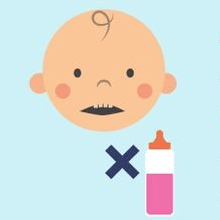 Baby bottle tooth decay can be caused by prolonged exposure of a child’s teeth to sweet liquids. These liquids can be milk, formula compositions, sodas, fruit juices, and other sweetened liquids. Sugars in the liquids collect around the child’s teeth and gums. The sugars feed the bacteria that can cause plaque. Even the acid attacks the teeth and gums each time a child consumes any sweet liquid. After, repeated onslaughts of acid, tooth decay can set in. The same is true with prolonged breast-feeding and with children who are used to pacifiers dipped in honey or syrup. Sugar from the fluids left in the mouth can cause cavities.
Baby bottle tooth decay can be caused by prolonged exposure of a child’s teeth to sweet liquids. These liquids can be milk, formula compositions, sodas, fruit juices, and other sweetened liquids. Sugars in the liquids collect around the child’s teeth and gums. The sugars feed the bacteria that can cause plaque. Even the acid attacks the teeth and gums each time a child consumes any sweet liquid. After, repeated onslaughts of acid, tooth decay can set in. The same is true with prolonged breast-feeding and with children who are used to pacifiers dipped in honey or syrup. Sugar from the fluids left in the mouth can cause cavities.
Steps to Ensure Baby Oral Hygiene
Most importantly, never allow a child to fall asleep with a bottle containing any sweetened liquids like the ones mentioned above. Parents should clean and massage the baby’s gums once a day to remove all damaging substances. This can be done by wrapping a moistened gauze or washcloth around your finger and gently clean the teeth and massage the gums.
Plaque prevention measures should begin as early as the eruption of the first baby tooth. When you start using a brush to clean your baby’s teeth, use a soft-bristled toothbrush and amount of toothpaste should be the size of a pea. You should use fluoride toothpaste once the child learns to spit. A child’s first visit to a dentist should be when it is between 6 and 12 months old.
Never give a baby any sugary drink just before it goes to sleep. Saliva is not produced in the mouth while sleeping, so there is nothing to wash away the harmful substances. Remember, damaged or decayed can lead to the growth of unhealthy teeth at a later stage.
Diet Changes
Preventing tooth decay in a child can involve alterations in its diet. Making small changes over a period of time is easier and ultimately leads to better dental hygiene. Dilute the sweetened liquids with water in degrees over a period of two to three weeks. Then, if your child still uses a bottle give it a clean pacifier immediately after the meal. Water is the only safe liquid to prevent baby bottle tooth decay. You should be sure to decrease consumption, particularly between meals.
It is better if children are weaned away from the bottle as soon as possible. However, the sucking motion helps in the development of facial muscles and strengthens the tongue. It is necessary to strike a balance. You may ask the dentist for the best time to take away the bottle.
Harmful Effects of Thumb-Sucking
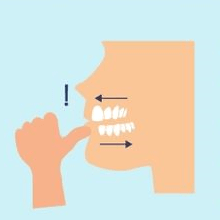 A thumb-sucking baby looks too cute, but only a dentist knows that the sucking is actually harming the baby in the long run. Parents rely on other pacifiers, teething toys and other ‘suckable’ items in order to keep the children calm and encourage emotional adjustment. Unfortunately, many children become addicted to thumb-sucking. However, it can have long-lasting negative repercussions if the habit continues beyond the fifth birthday.
A thumb-sucking baby looks too cute, but only a dentist knows that the sucking is actually harming the baby in the long run. Parents rely on other pacifiers, teething toys and other ‘suckable’ items in order to keep the children calm and encourage emotional adjustment. Unfortunately, many children become addicted to thumb-sucking. However, it can have long-lasting negative repercussions if the habit continues beyond the fifth birthday.
Malocclusion
Dental malocclusion is a serious result of thumb-sucking, which can have permanent effects. Malocclusion is the misalignment of teeth that is visible even when the mouth is closed. Two of the most common types of malocclusion are open to bite and overbite. Open bite is the condition when the front teeth at the top and bottom grow outward. The front teeth do not touch and the lips have to stretch to cover them. This may require orthodontic intervention at a later date or may complicate other dental misalignments.
Like in open bite, overbite occurs when the front upper teeth get misaligned and they start growing outwards. Overbite does not occur in the lower jaw. In this malocclusion, the upper teeth cover the bottom teeth and two sets of teeth do not touch when the mouth is closed. Thus overbite can affect the face and the child’s smile. Extreme cases may require immediate orthodontic treatment.
Other Harmful Effects
If children suck on a thumb for years, they may develop serious skin problems on the thumb. The skin of the thumb may start looking calloused. After exposure to the moisture of the mouth, the skin may also crack or become vulnerable to infections and injuries. Try to discourage the habit by placing a medical finger glove on the thumb. Do not use aversion techniques like placing the thumb in an unpleasant solution. These can frustrate the child and the results rarely last.
Thumb-sucking affects the formation of teeth, palate and jaw. Hence, the behaviour can also influence how the child speaks. Prolonged thumb-sucking can result in speech impediments, including lisping and the inability to pronounce hard consonants such as ‘D’ and ‘T’. The speech defects are also caused by the shape of the child’s teeth in relation to the tongue.
Thumb-sucking may cause social issues much before it becomes an oral health challenge. Older children who suck their thumbs often become the targets of ridicule by their peers.
Early Tooth Loss
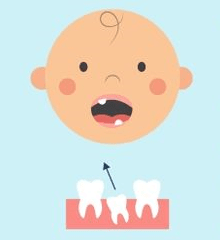 All children lose their baby teeth to be replaced by permanent teeth. However, decay and injuries or a small jaw space can cause the child to lose teeth prematurely. If teeth fall before the advent of permanent teeth, the neighbouring can tilt or shift due to the gap. Then, when the permanent tooth tries to grow in its space, there may not be room and the new tooth may also grow crooked and misaligned. Such teeth, in turn, can cause problems of their own like interfering with proper chewing or temporomandibular joint disorders. It is this joint, which enables you to open and close your mouth, move it up or down and side to side so that you can chew, talk and yawn.
All children lose their baby teeth to be replaced by permanent teeth. However, decay and injuries or a small jaw space can cause the child to lose teeth prematurely. If teeth fall before the advent of permanent teeth, the neighbouring can tilt or shift due to the gap. Then, when the permanent tooth tries to grow in its space, there may not be room and the new tooth may also grow crooked and misaligned. Such teeth, in turn, can cause problems of their own like interfering with proper chewing or temporomandibular joint disorders. It is this joint, which enables you to open and close your mouth, move it up or down and side to side so that you can chew, talk and yawn.
If your child loses a tooth prematurely, the dentist may install a space maintainer in the gap between the neighbouring teeth on either side. This may be a small plastic or metal appliance that fits in the gap left by the missing tooth. Your dentist will remove it once the permanent tooth begins to erupt in that space.
In Conclusion
Parents play an important role in all aspects of their child’s upbringing and oral health should be one of them. It is necessary to inculcate good oral health practices from a very early age. They should also train their children in the right ways to brush and floss their teeth. Remember, your child learns from your habits, so you need to practice good oral hygiene habits yourselves. You can also teach your children how important dental hygiene is to overall health and quality of life.


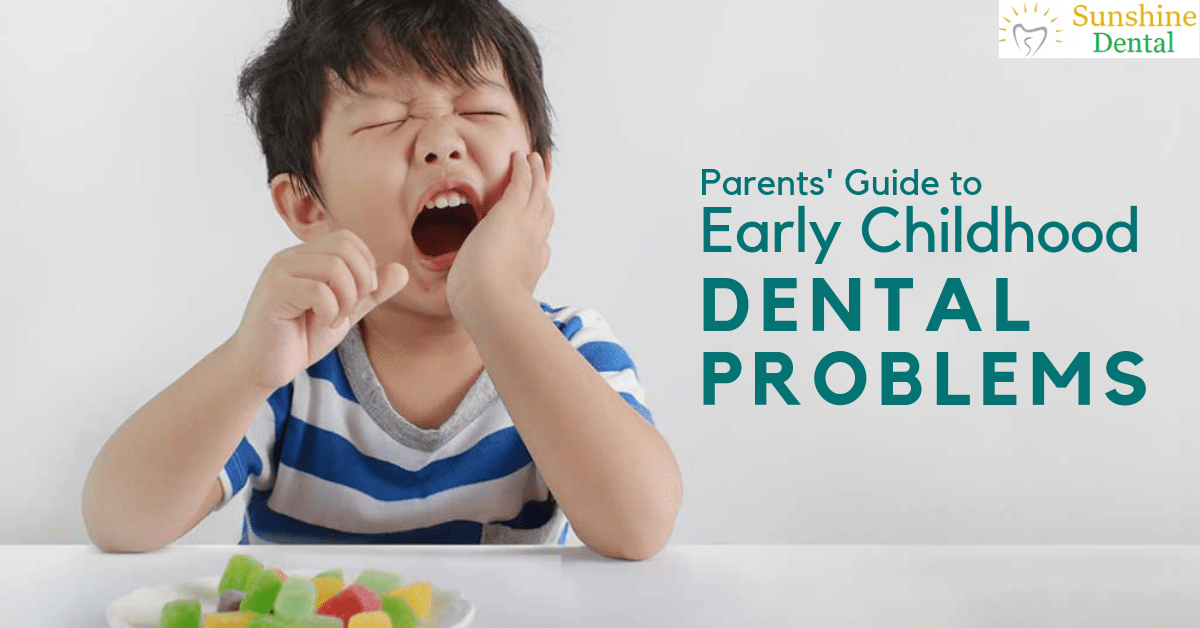
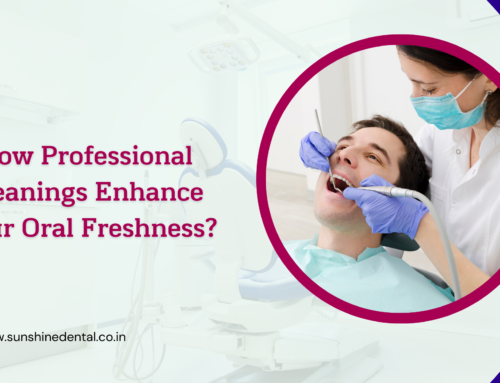
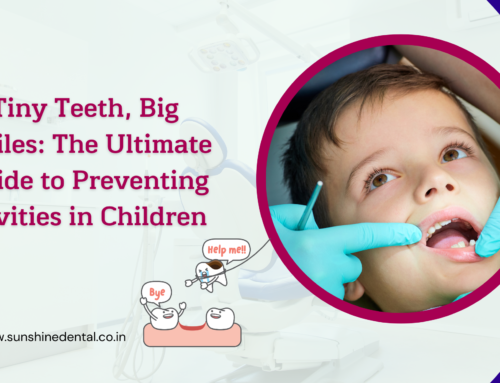
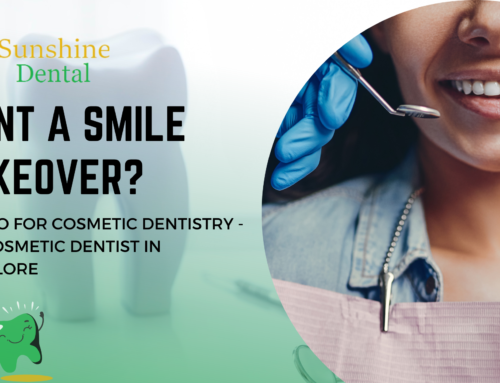
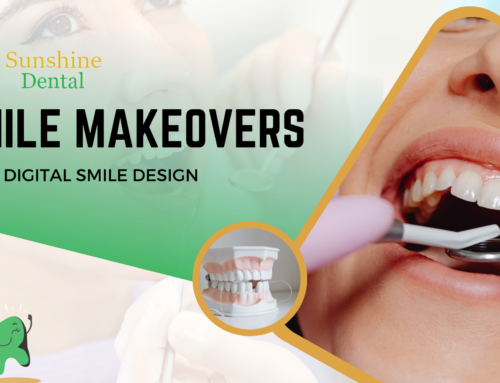
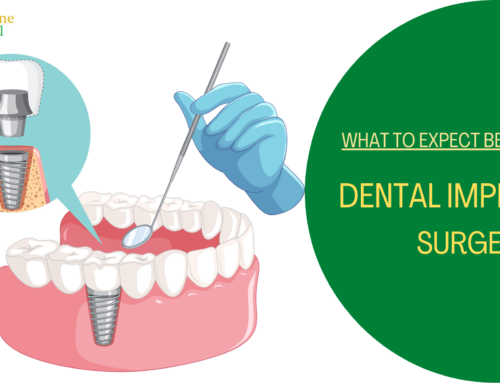
[…] [Originally Published on Sunshine Dental Blog] […]
[…] [Originally Published on Sunshine Dental Blog] […]